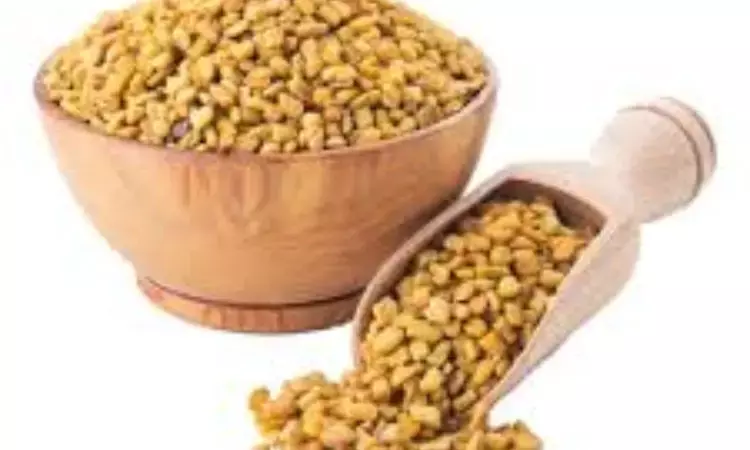- Home
- Medical news & Guidelines
- Anesthesiology
- Cardiology and CTVS
- Critical Care
- Dentistry
- Dermatology
- Diabetes and Endocrinology
- ENT
- Gastroenterology
- Medicine
- Nephrology
- Neurology
- Obstretics-Gynaecology
- Oncology
- Ophthalmology
- Orthopaedics
- Pediatrics-Neonatology
- Psychiatry
- Pulmonology
- Radiology
- Surgery
- Urology
- Laboratory Medicine
- Diet
- Nursing
- Paramedical
- Physiotherapy
- Health news
- Fact Check
- Bone Health Fact Check
- Brain Health Fact Check
- Cancer Related Fact Check
- Child Care Fact Check
- Dental and oral health fact check
- Diabetes and metabolic health fact check
- Diet and Nutrition Fact Check
- Eye and ENT Care Fact Check
- Fitness fact check
- Gut health fact check
- Heart health fact check
- Kidney health fact check
- Medical education fact check
- Men's health fact check
- Respiratory fact check
- Skin and hair care fact check
- Vaccine and Immunization fact check
- Women's health fact check
- AYUSH
- State News
- Andaman and Nicobar Islands
- Andhra Pradesh
- Arunachal Pradesh
- Assam
- Bihar
- Chandigarh
- Chattisgarh
- Dadra and Nagar Haveli
- Daman and Diu
- Delhi
- Goa
- Gujarat
- Haryana
- Himachal Pradesh
- Jammu & Kashmir
- Jharkhand
- Karnataka
- Kerala
- Ladakh
- Lakshadweep
- Madhya Pradesh
- Maharashtra
- Manipur
- Meghalaya
- Mizoram
- Nagaland
- Odisha
- Puducherry
- Punjab
- Rajasthan
- Sikkim
- Tamil Nadu
- Telangana
- Tripura
- Uttar Pradesh
- Uttrakhand
- West Bengal
- Medical Education
- Industry
New Research Highlights Fenugreek's Role in Blood Sugar Control and Wheat Starch Modification

India: Fenugreek may help regulate blood sugar levels by slowing down wheat starch hydrolysis, making it a potentially effective tool for diabetes management, a recent study published in the Journal of Food Science has revealed.
Recent studies have revealed promising results regarding the use of fenugreek (Trigonella foenum-graecum L.) seed extract in modifying the properties of wheat (Triticum aestivum L.) starch. The research by Vivek Chandra Verma, Department of Biochemistry, Panjab University, Chandigarh, India, and colleagues highlights the extract's potential to lower the glycemic index (GI) and improve in vitro digestibility, making it a valuable addition to functional food formulations.
Diabetes is a significant global health challenge, nearing epidemic levels. In 2021, diabetes mellitus accounted for 6.7 million deaths worldwide, with projections suggesting a nearly tenfold increase in mortality by 2030, potentially reaching 783 million by 2045. Wheat starch, which makes up about 70% of the wheat grain's endosperm, is crucial in this issue. The rapid hydrolysis of wheat starch can lead to spikes in postprandial glucose levels, contributing to diabetes. The action of enzymes like α-amylase and α-glucosidase on carbohydrates primarily drives this rise in blood glucose. While various medications exist for diabetes management, they often come with high costs and potential side effects. In contrast, natural remedies such as fenugreek have been used in traditional medicine for their ability to help regulate blood glucose levels.
The glycemic index is a critical measure of how quickly carbohydrate-containing foods raise blood glucose levels. Foods with a high GI can lead to spikes in blood sugar, which is particularly concerning for individuals with diabetes or insulin sensitivity. Considering this, Dr. Chandra Verma and colleagues aimed to study the impact of fenugreek seed extract (FSE) on in vitro starch hydrolysis by pancreatic α-amylase and the ultrastructural characteristics of starch.
For this purpose, the researchers evaluated wheat cultivars for total starch, amylose content, and resistant starch levels while also being screened for their predicted glycemic index. Microscopic analysis was performed to assess the size and shape of starch granules, comparing native starch with that treated with FSE. They found that FSE significantly inhibited enzymatic starch hydrolysis, with the strongest inhibitory effect observed at a concentration of 0.2% FSE.
"These findings indicate that fenugreek may help regulate blood glucose levels by diminishing the hydrolysis of wheat starch, making it a promising option for diabetes management," the researchers wrote.
Incorporating fenugreek seed extract into wheat starch presents an innovative approach to reducing glycemic responses and enhancing digestibility, as highlighted by the study authors. As researchers continue to explore its potential, this natural ingredient could pave the way for healthier dietary options that align with the growing focus on preventive health and nutrition.
Reference:
Mate, P. S., Verma, V. C., Agrawal, S., Jaiswal, J. P., Kumari, V. V., Kumar, R., Kumari, M., Gaber, A., & Hossain, A. Effect of fenugreek (Trigonella foenum-graecum L.) seed extract on glycemic index, in vitro digestibility, and physical characterization of wheat (Triticum aestivum L.) starch. Journal of Food Science. https://doi.org/10.1111/1750-3841.17411
Dr Kamal Kant Kohli-MBBS, DTCD- a chest specialist with more than 30 years of practice and a flair for writing clinical articles, Dr Kamal Kant Kohli joined Medical Dialogues as a Chief Editor of Medical News. Besides writing articles, as an editor, he proofreads and verifies all the medical content published on Medical Dialogues including those coming from journals, studies,medical conferences,guidelines etc. Email: drkohli@medicaldialogues.in. Contact no. 011-43720751


